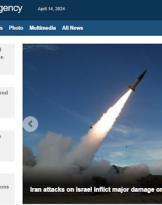Ambassador Luigi Mattiolo has been appointed diplomatic advisor to the Prime Minister Mario Draghi.
Like his predecessor Piero Benassi, he also held the role of ambassador at the Berlin diplomatic office as his last post.
However, more attention is drawn to the fact that Mattiolo also held the post of ambassador to Turkey, from 2015 to 2018, and then replaced Benassi himself (appointed diplomatic adviser to President Conte) as ambassador to Germany.
The Conte 1 and 2 governments have conducted a highly volatile foreign policy, losing weight in important geopolitical contexts such as Libya (both the one controlled by Haftar and the one under the jurisdiction of the internationally recognized premier al-Sarraj), a fundamental country for our energy supplies, as well as for the management of migratory flows from the African continent.
The role of Italy in the country of the former dictator Gaddafi was taken by the Turkey of President Erdoğan.
The turning point came with the cooperation agreement, both in the economic and military spheres, signed by the government of al-Sarraj and Ankara on November 27, 2019, following which Turkey began sending military and militia material to Tripolitania " Syrians ". Tripoli, at that time, was under siege by the troops of General Haftar, the latter openly supported by Egypt, the UAE and Saudi Arabia, while Russia and France did so in a more veiled way.
Thanks above all to artillery and armed drones (TB2 Bayraktar), the Turks managed to put an end to the siege of Tripoli, especially after the capture of al-Watiyya airport by al-Sarraj's troops.

After years of useless appeals to Italy and the European Union for military aid, the recognized premier al-Sarraj had found a valid ally in President Erdoğan who would allow him to keep his government standing (even if effective power does not. he never detained, as he was forced from the beginning of his mandate to rely on the militias of Turkish origin of Misurata).
In fact, this is precisely the point: Italy has for years denied military aid to the fragile premier al-Sarraj, despite having been sponsored by the various governments of the past legislature.
The subsequent Conte government maintained this line, ignoring that other actors were entering the Libyan crisis. Indeed, it seemed that Italian politics was condescending to Turkey, favoring de facto the Turkish occupation of Tripolitania.
Symptomatic is the case of the Saipem 12000 - a vessel for oil exploration - which in 2018 was removed by Turkish naval units in the EEZ (Exclusive Economic Zone) of Cyprus (v.articolo).
Furthermore, the possibility that Ankara limits the migratory flows that depart from the coast of Tripolitania appears completely without foundation. In the recent past Erdoğan has used migrants as a lever of blackmail against the European Union.
The events of the last two years have shown how the Italian laxity, generated by a foreign policy lacking strategic objectives, has instead increased Turkish expansionist policy, not only in the Eastern Mediterranean.
This is why it is now legitimate to ask what policy President Draghi will follow towards Turkey, bearing in mind that he has a much better knowledge of international relations than his predecessor.
One piece of advice we could give to diplomatic adviser Mattiolo is to be less submissive towards the Turkish and to assert, at least for once, also our national interests.
Photo: Twitter












